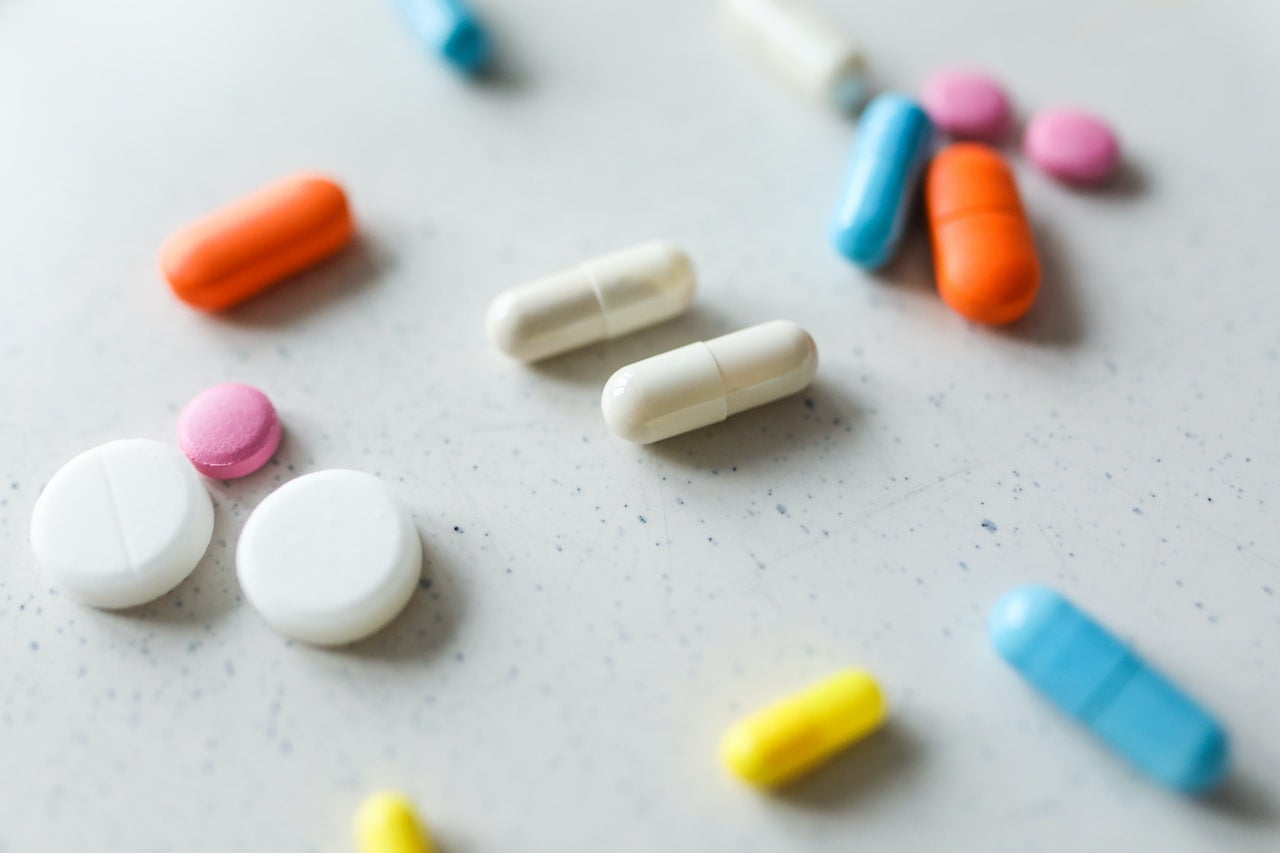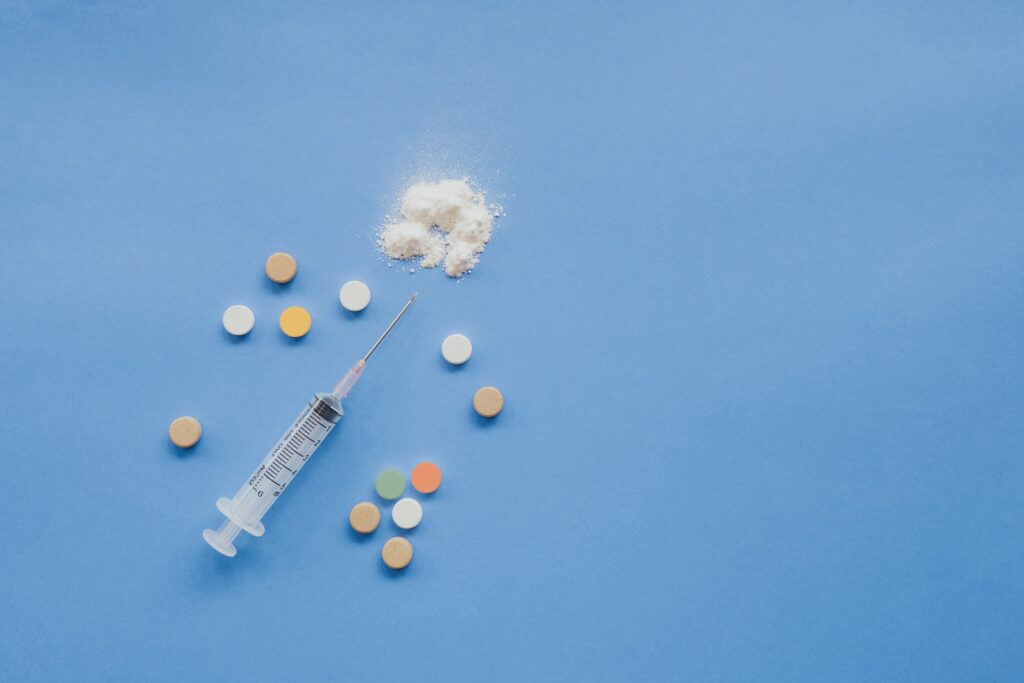Drug and Alcohol Rehab in Lewisham
At Rehab Recovery, we offer free advice from a team of non-judgemental professionals, many of whom are in recovery and understand how hard it can be to change your relationship with addiction.
Simply reach out to our 24/7, confidential hotline on 0800 088 6686.
Drug & Alcohol Statistics in Lewisham

Lewisham has a higher prevalence of opiate and/or crack users and injectors compared to the London average, as well as the England average (1).
The rate of hospital admissions for alcohol-related harm has risen by 464 per 100,000 residents since 2008 (2). This increase is one of the highest in this area of London.
Another concerning fact is that drug deaths are on the rise in Lewisham. In 2021, there were 14 drug poisoning deaths, compared to only 11 in 2020 (3).
That being said, Lewisham is certainly not one of the top London boroughs for drug and alcohol addiction. Drug and alcohol use is less common than it is in most other areas of the UK.
One reassuring statistic is that most people entering Lewisham rehab for alcoholism do not have dependents.
Only 12% of people admitted into Lewisham rehab have children who live with them, compared to 18% of rehab patients in England (4). The statistic for childless patients is 62%, compared to only 46% in England on the whole (5).
Yet, we cannot ignore the addiction problem in Lewisham simply because it is worse elsewhere. Funding for addiction treatment services has recently been cut in the area, and this could lead to higher rates of drug and alcohol dependency and addiction.
In 2019/20, the funding was reduced to £3.8 million from £4.9 million (2015/16), which means funding has been reduced by over £1 million over the past five years (6).
For more information on Drug and Alcohol Rehab in Lewisham, contact us today on 0800 088 66 86.
All About Drug & Alcohol Rehab in Lewisham

If you struggle with drug or alcohol dependency, you will most likely know something about drug and alcohol rehab in Lewisham.
However, if you have not done the research yourself, your idea of rehab may be inaccurate. We want to tell you the reality of Lewisham rehab.
If you have heard that all patients at rehab will have a detox, this isn’t true. Some substances do not cause physical addiction, so all patients don’t need to have a medical detox.
However, it is very likely that you will detox, especially if you are addicted to alcohol or heroin.
The bad news is that detoxing is not easy, as it can cause you to experience withdrawal symptoms including insomnia, cravings, shaking, muscle aches, fatigue, hallucinations, and seizures.
There is less chance you will have a seizure if you detox at rehab in Lewisham, as you will be given medication to prevent this from happening. If it does happen, there will be someone available to treat you immediately.
Most detoxes last around 3-7 days, and once the patient has successfully withdrawn from the substance, they will move on to the therapy sessions offered at Lewisham rehab. Every day, patients take part in therapy sessions, as well as additional classes such as motivational groups.
The final step involves creating an aftercare plan. The patient is invited to contribute to this plan, as they know best which resources they will need when they leave rehab.
For the next 12 months, the patient will be able to depend on this aftercare plan to keep them sober. As well as aftercare, they will be encouraged to make healthy choices that prevent relapse from occurring.
One common part of the aftercare plan is regular calls from the rehab facility. We believe this is extremely helpful for patients, as they are less likely to relapse when the staff (whom they have grown to know and trust) are holding them accountable regularly.
Relapse is also less likely if patients feel cared for, and these regular calls are often a reminder that the patient’s well-being is a priority for drug and alcohol rehab.
For more information on Drug and Alcohol Rehab in Lewisham, contact us today on 0800 088 66 86.
How Much Does Private Drug and Alcohol Rehab in Lewisham Cost?
Inpatient treatment, which usually involves staying at rehab for 28 days to have a detox and regular therapy, can cost as little as £3,000, and as much as £70,000.
The latter would only be charged by a luxury drug and alcohol rehab in Lewisham.
If you attend rehab for the detox alone, which usually requires you to stay for around 10 days, you could be spending £3,000 on treatment.
This cost is increased if you decide to have therapy as well (which is usually recommended), as the stay is lengthened to 28 days.
The cost also varies depending on which type of accommodation you select. Staying in a shared room for a month could cost £6,000, but a private room could cost £10,000.
When we have spoken to you over the phone and we know what your budget is, we can be more specific about the costs of inpatient rehab, as we will be able to research local clinics that are within your price range.
For more information on Drug and Alcohol Rehab in Lewisham, contact us today on 0800 088 66 86.
Will Drug and Alcohol Rehab in Lewisham Help Me to Avoid Relapse?

We must acknowledge the fact that relapse is common among people with addiction, whether they have attended rehab or not.
Studies show that 40-60% of people with a substance abuse disorder will relapse at some point (1).
The statistics become even more concerning when we look at certain drugs. One study found that the relapse rates for opiates was 91%, and in 59% of cases, the relapse occurred within one week (2).
This may seem disheartening, as it tells us that most drug users will not successfully recover and stay recovered. Some people are deterred from seeking drug and alcohol rehab in Lewisham for this very reason.
However, it is important to remember that relapsing is not the end of recovery.
There is no cure for addiction, so it is inevitable that some people are going to stumble in their attempt to remain sober, but this does not mean that their therapy has been pointless, or that they will not be able to get back on track again.
At Rehab Recovery, we offer free advice from a team of non-judgemental professionals, many of whom are in recovery and understand how hard it can be to change your relationship with addiction.
Simply reach out to our 24/7, confidential hotline on 0800 088 6686.
What’s more, at Rehab Recovery, we see addiction as a disease. If we compare it to a physical illness, we may find it easier to understand that people can go through stages of being more unwell, and stages of being in remission.
For instance, the relapse rate for asthma is 50-70%, which is higher than the substance abuse relapse rate (3).
This means we should avoid viewing relapse as something that should never happen, and instead accept that it does happen, and it does not have to be the end of someone’s recovery.
Yet, this doesn’t mean we shouldn’t do all we can to prevent relapse from occurring. The reason we recommend attending rehab in Lewisham is that it has the lowest relapse rates of all the treatment options.
The main reason for this is that rehab facilities create aftercare plans for their patients, as they are aware that the most likely time for someone to relapse is in the first 90 days after receiving treatment (4).
As individuals are very stressed at this time, they need constant support to help them to stay on track with their sobriety.
Many drug and alcohol rehabs in Lewisham provide their patients with a personalised aftercare plan to ensure the patient gets this support in the form of accountability, check-ins, access to helplines, and therapy.
For more information on Drug and Alcohol Rehab in Lewisham, contact us today on 0800 088 66 86.
How Will Drug and Alcohol Rehab in Lewisham Benefit Me?

The first way that inpatient treatment can benefit you is by providing you with a sense of community.
It is possible that you currently do not know anyone who is struggling with addiction, and perhaps you even have people in your life who enable your substance abuse problems.
When you enter rehab in Lewisham, this changes. You meet people who are struggling with a range of problems, both relating to substances and to mental health.
Most people find that this makes them more eager to recover, as they have the support of their fellow patients.
You will also meet people who are in the later stages of treatment, and they can put you at ease about what’s to come, and reassure you that you are capable of getting sober and completing treatment.
Secondly, residential rehab in Lewisham is beneficial because there are less triggers for you to deal with.
At home, you can access substances whenever you want, you are likely to be suffering from stress relating to your addiction, and you may have people encouraging you to keep up your drug use.
At Rehab Recovery, we offer free advice from a team of non-judgemental professionals, many of whom are in recovery and understand how hard it can be to change your relationship with addiction.
Simply reach out to our 24/7, confidential hotline on 0800 088 6686.
However, you do not have access to substances at rehab, so there is no possibility for you to relapse, which takes away a lot of the temptation.
Though you are likely to be stressed at rehab due to the difficulties of recovery, you will not be distracted by things like work and finances, so you will have the time to focus on getting better.
Finally, rehab can introduce you to new ways to cope with your addiction that you have never tried before.
If you keep getting sober without getting professional help, you are bound to keep relapsing as you do not have any new coping mechanisms to work with.
Attending rehab in Lewisham can be a great way to increase your chances of maintaining sobriety, as you will work with a range of professionals who will teach you how to manage your addiction.
You will learn how to regulate your emotions, how to avoid triggers, how to practise mindfulness, how to set boundaries with enablers, how to improve your physical health, and many other skills that will be vital for long-term recovery.
For more information on Drug and Alcohol Rehab in Lewisham, contact us today on 0800 088 66 86.
Why Should I Recover in Lewisham?
Recovering in a rehab facility close to home is ideal for most people. Practically, it is easier as the treatment centre will most likely be just a short drive away. This is important if the patient wishes to have their family visit them during their stay.
It may also be less stressful to attend rehab when it is around the corner, as you only need to focus on getting time off work, rather than considering how you will travel to rehab, and how you will get home at the end of the 28 days.
Sometimes, people recover more successfully when they are in a familiar environment. This means they benefit from attending rehab in Lewisham, as they know they aren’t far from home, and this reduces their anxiety.
On the other hand, there is no requirement for you to go to rehab in Lewisham. If you believe you would be better off in rehab in a different area, you can request to get a referral somewhere else.
You may find this better if you want some distance from your hometown, as it is common to associate your drug and alcohol struggles with the area you live in.
For more information on Drug and Alcohol Rehab in Lewisham, contact us today on 0800 088 66 86.
Questions to Ask Yourself Before Going to Drug and Alcohol Rehab in Lewisham

You should not enrol at a drug and alcohol rehab in Lewisham if you have not considered all of your options, and you do not know how rehab works. Here are some questions to ask yourself if you are serious about attending residential rehab:
1. Am I ready to get sober?
This is one of the most important questions to ask yourself, as it is the quickest way to find out whether you are a suitable candidate for rehab (before considering more complicated questions).
Some people go to rehab in Lewisham as they are pressured to choose this option, but they do not want to get sober.
We strongly advise you to avoid this, as you will not be able to establish long-term recovery if you are not willing to do so.
It is already difficult enough to stay sober if you have lots of willpower, so if you don’t, please wait until you are ready.
In the meantime, do more research into the benefits of inpatient treatment, and the consequences of living with addiction.
Some signs you are ready to get sober are: you are interested in hearing about people’s recovery journeys, your health is deteriorating as a result of your addiction, and you are hiding your problems from others in order to avoid being judged.
If you are hiding your addiction, it implies you are aware it isn’t healthy. This means you are more prepared for rehab in Lewisham than someone who is in denial and still believes they do not have a substance abuse problem.
2. Am I ready to make significant changes in my life?

When you are considering drug and alcohol rehab in Lewisham, you may be thinking about the month-long stay at rehab, and nothing else. However, you need to view rehab as the beginning of a lifelong recovery journey.
When you leave Lewisham rehab, there are important changes you will have to make to maximise your chances of avoiding relapse.
You may need to cut off unsupportive loved ones, make new friends, and/or get a new job. Are you ready to make these changes?
As relapse is most likely in the early stages of recovery, you must make these changes if you want to stay sober.
It is disheartening to hear stories of patients who leave rehab, make zero changes to their lifestyle, and inevitably relapse.
We know that it is very challenging to change the way you do things, but it will be worth it when you realise it is easier to avoid temptation this way.
Some tips for establishing change are: keep in regular contact with your rehab centre, attend therapy on a weekly basis (or more frequently at the beginning), go to self-help meetings in Lewisham, meet other sober people in Lewisham, and journal each day to figure out what you want out of your life.
At Rehab Recovery, we offer free advice from a team of non-judgemental professionals, many of whom are in recovery and understand how hard it can be to change your relationship with addiction.
Simply reach out to our 24/7, confidential hotline on 0800 088 6686.
3. Am I happy to attend rehab in Lewisham?

You may assume that drug and alcohol rehab in Lewisham is your only option, but this is not the case.
Think about whether rehab in Lewisham would be good for you, or whether it would be better for you to be further from home when you first get sober.
As you are considering this, you may want to think about your family situation, the cost of rehab in Lewisham compared to other areas, and the different facilities available in various locations.
If you have another location in mind, we would be more than happy to compare the two areas and let you know which one would be better for you.
Most people prefer to recover in their hometown, as it involves less change and it makes more sense practically.
Yet, there are reasons to consider recovering somewhere other than Lewisham; it widens your options, and it allows you to have a fresh start.
4. How do I feel about group therapy?

Group therapy is always used in drug and alcohol clinics. This is something that concerns many new patients, so you aren’t alone if you are worried about this.
Group therapy sessions tend to happen every day at rehab in Lewisham, so it is definitely something you will adapt to throughout your stay, and it will get less intimidating with each session.
Generally, patients will introduce themselves and discuss recent issues they have been having.
As different people open up, newcomers are made to feel welcome in discussing their struggles. Often, teambuilding exercises are used to help the patients trust one another more.
If you are completely against group therapy, you will be allowed to stick to individual therapy.
At Rehab Recovery, we offer free advice from a team of non-judgemental professionals, many of whom are in recovery and understand how hard it can be to change your relationship with addiction.
For more information about drug and rehab in Lewisham, simply reach out to our 24/7, confidential hotline on 0800 088 6686.

However, we would encourage you to take part at least once, or even to attend the sessions without saying anything, as it can be a huge support to you in your recovery.
If you do not end up engaging with group therapy at Lewisham rehab, you will still get to experience the many benefits of individual therapy, whether that be holistic therapies, contingency management, acceptance and commitment therapy, or another form.
Not every session you attend will be as formal as therapy. Many drug and alcohol rehabs in Lewisham offer diverse sessions, including intensive workshops.
They allow patients to explore particular areas that are affected by addiction, such as relationships or trauma.
This can be very useful as it is applicable to the real world, and patients need to keep relating their sobriety to everyday life in order to keep it up when they leave rehab.
What’s more, it is a way for patients to bond over shared struggles, and remind them that addiction impedes on every area of their lives, and therefore they must remain motivated to battle it.
For more information on Drug and Alcohol Rehab in Lewisham, contact us today on 0800 088 66 86.
What Criteria is Used to Determine Whether Someone Has an Addiction?

The criteria used to diagnose addiction is not the same in every drug and alcohol rehab in Lewisham.
If we have already referred you to a specific Lewisham treatment centre, get in touch with us to find out what criteria they use, or ask the staff directly.
At Rehab Recovery, we offer free advice from a team of non-judgemental professionals, many of whom are in recovery and understand how hard it can be to change your relationship with addiction.
Simply reach out to our 24/7, confidential hotline on 0800 088 6686.
Here are two examples of criteria that may be used at your drug and alcohol clinic in Lewisham:
AUDIT
One example of a diagnostic criteria is the AUDIT (alcohol use disorders identification test) criteria. It is an alcohol harm screening tool consisting of 10 questions with a corresponding scoring system.
Some of the questions are:
- Have you or somebody else been injured as a result of your drinking?
- How often do you have a drink containing alcohol?
- How often have you had six or more units (women)/8 or more units (men) on a single occasion in the last year?
- How many units of alcohol do you drink on a typical day when you are drinking?
We know that these questions can bring up shame for people with substance abuse problems, but they are a necessary tool to help staff understand what you need out of treatment.
Remember that it is their job to help people recover, so nothing you say will shock them or cause them to shame you.

ASAM dimensions
One criterion that is used for all drug addiction, not just alcohol, is the American Society of Addiction Medicine’s six dimensions.
By addressing all areas of the patient’s life, the assessor can decide what level of need they have, and therefore which types of treatment would benefit them the most.
The six dimensions are:
1. Acute intoxication and/or withdrawal potential
This helps the assessor to gather specific information about the drug use (e.g., dose, timeframes) and to discover whether the patient has ever withdrawed from drugs in the past.
2. Biomedical dimension
This refers to the patient’s medical history, which includes any physical illnesses.
At this stage, the assessor will find out whether the patient has ever suffered from physical illness as a result of their addiction e.g. Deliriums Tremens, Wernicke Encephalopathy, cardiovascular disease, or a weakened immune system.
3. Emotional, behavioural, or cognitive conditions and complications
This dimension focuses on the mental health of the patient, which is very likely to have been impacted by their substance abuse.
It will also take into account any pre-existing mental health conditions that could have led to the addiction.
4. Readiness to change
The assessor will ask questions to determine whether the patient is prepared to make changes in order to establish sobriety in their life, and to leave addiction in the past.
5. Relapse, continued use, or continued problem potential
This stage looks at the patient’s relapse history, as well as helping to decide how much risk the individual has of relapsing.
At Rehab Recovery, we offer free advice from a team of non-judgemental professionals, many of whom are in recovery and understand how hard it can be to change your relationship with addiction.
Simply reach out to our 24/7, confidential hotline on 0800 088 6686.
6. Recovering/living environment
This dimension addresses the living situation of the patient to decide whether it is conducive to recovery.
It may look at whether they live alone, whether there is any dysfunction in their family, whether they have children, and whether they have easy access to substances at home.
After posing the questions to the patient, the assessor decides which level of care they need (5). The levels are:
- Level 0.5 – Early intervention (e.g., education about drug use)
- Level 1 – Outpatient treatment (9 hours or less per week)
- Level 2.1 – Intensive outpatient treatment (9-20 hours per week)
- Level 2.5 – Partial hospitalisation (20 hours a week or more)
- Level 3.1 – Low-intensity residential treatment (minimum 5 hours a week)
- Level 3.3 – High-intensity services (population-specific)
- Level 3.5 – Clinically managed residential services (24 hour care)
- Level 3.7 – High-intensity inpatient treatment (24 hour setting but no daily doctor interaction)
- Level 4 – 24-hour nursing care (with daily doctor visits)
Choose Sobriety With Rehab Recovery

No matter how severe your addiction is, it is never too late to choose sobriety. It may take longer for you to feel stable if your substance abuse problem is severe, but you will still be able to recover.
If you are dwelling on the challenges of recovering, such as the withdrawal symptoms and the difficulties involved with addressing trauma, we would encourage you to consider the alternative.
The alternative to getting treatment in Lewisham is living with addiction, and this will cause much more pain than getting sober ever could.
The longer you are consuming substances, the more likely you will experience long-term symptoms of substance abuse, which could include seizures, psychotic behaviour, or death (7).
By choosing to get sober, you are deciding to take charge of your life rather than letting your addiction control you.
This is something the Rehab Recovery team are very familiar with, as most of our staff are in recovery themselves.
Contact us on 0800 088 66 86 to speak to one of our professional advisers who will take responsibility for finding the perfect drug and alcohol rehab in Lewisham for you.
FAQs About Addiction and Rehab in Lewisham
We’re going to answer some FAQs about addiction, as well as treatment in Lewisham. If you have any questions that aren’t mentioned here, first find out whether any of our other articles hold the answer.
If not, you can call us on 0880 088 66 86 and ask to speak to an addiction specialist:
1. Is alcohol a drug?
Yes, alcohol is a drug. More specifically, it is a central nervous system depressant. It is both physically and mentally addictive, just like many other drugs.
The main difference between alcohol and other drugs is not their qualities or the symptoms they produce, but the simple fact that alcohol is legal in the UK.
Why do we distinguish between alcohol and drugs?
The main reason we distinguish between alcohol and drugs, despite alcohol being a drug, is the fact that alcohol is legal. This means it is more socially acceptable to drink high quantities of alcohol, and even to be dependent on alcohol, than other substances.
Some people are not even aware that alcohol is a drug, as it is so widely used, and is subject to less stigma than illegal substances. For this reason, they may separate drugs and alcohol when they are discussing substances.
Can anyone develop an addiction?
Technically, anyone can develop an addiction. You do not need to be the child of a drug user, have an ‘addictive personality’, or go clubbing to become dependent on drugs. Anyone who uses a drug is risking developing an addiction.
Yet, there are certain risk factors for addiction, which means some people are more likely to become addicted to a drug than others. The main risk factor is genetics, so if someone has family members with addiction, they are more likely to develop one at some point.
As people do not tend to know whether they are genetically prone to addiction (unless they have family members who suffer), they may falsely assume that they are safe in terms of genetics, when they are not.
Another risk factor is trauma. When people are exposed to trauma, they are more likely to develop an addiction. This is because trauma changes the brain, and it can lead to long-term issues such as a sensitive fight or flight response, depression, and anxiety. People may turn to substances to cope with this, which could easily lead to an addiction.
Even if you have not experienced severe trauma, your environment can increase your risk of addiction. This includes getting involved with people who use drugs, being desensitised to drug use, or experiencing challenges including grief or divorce.
Can you recover from addiction?
It is possible to recover from being in the depths of addiction. This means that you can live a sober lifestyle without experiencing extreme temptation. When you do feel temptation, you can resist it by applying certain coping mechanisms.
However, there is no way to completely recover from addiction and never experience temptation again. This applies to people who have never had treatment, as well as people who have had intense treatment at rehab.
The reason for this is that addiction is a disease without a fixed cure. Treatment helps patients to cope, but it cannot take away their vulnerability to addiction.
Is abstinence or harm reduction better?
We believe that abstinence is always better as an addiction treatment. Harm reduction works for some people, but it tends to push patients back into their lifestyle of addiction, as they struggle to practise self-control when they are using drugs in any capacity.
As difficult as abstinence can be, it ensures that patients have the best chance of sobriety, as it is easier to resist temptation when drugs are completely off-limits. This is especially true when patients build a support system consisting of other sober individuals.
What’s more, we cannot expect people with addiction to treat substances in the same way that the average person does.
While many people could use alcohol or drugs occasionally and not become addicted, this is not the case if they are prone to addiction, and we should therefore be keen to outline the harm of drugs in addiction treatment.
Can you home detox in Lewisham?
Yes, there are home detoxes available in Lewisham. You could use a Lewisham treatment team, or even liaise with another treatment team if you wish, as you do not have to attend any appointments during the home detox.
The detox is very similar to a home detox as it is at rehab, yet it is much more independent as you do not have doctors monitoring you.
You will need to follow the instructions of the treatment provider at all times, which usually means not taking on other responsibilities while you are detoxing, having a family member there to support you, and taking prescribed medication at the correct times and in the correct dosages.
Home detoxes in Lewisham do not come with therapy, but we strongly recommend that you arrange your therapy when you finish treatment. It is best to find a therapist who specialises in addiction so that they will be able to help you in your recovery journey.
What is addiction treatment like in Lewisham?
As we have mentioned, you could choose to go to rehab in Lewisham, for detox and therapy. The other option we explained was a home detox in Lewisham. However, there is one more common option that we have not yet discussed. This is outpatient treatment in Lewisham.
Outpatient treatment is similar to rehab in the sense that there is a detox and therapy, and they usually take place at a rehab facility. However, it also resembles home detoxing the fact that patients stay in their own homes during treatment, only attending the clinic for daytime appointments.
If you opt for private addiction treatment in Lewisham, you will never have to deal with waiting lists of months to years. Usually, the wait time will be a maximum of a couple of weeks, and a minimum of a day.
If you choose Rehab Recovery as your treatment referral service, you are guaranteed access to quality drug and alcohol rehab clinics in Lewisham.
The clinics differ in terms of facilities available, therapies offered, and location, but they all consistently take people with severe addictions, treat them for 28 days, and provide them with a relapse prevention plan that lasts for a year after rehab.
Some of our clients ask us whether there is a treatment option that works for everyone. The answer is no, as everyone has different needs when it comes to treatment for drug and alcohol addiction.
However, if we had to choose just one option for all, it would be rehab in Lewisham.
Rehab has it all, from detoxing and therapy to healthy meals, sports facilities, and aftercare plans. If you are after the flexibility and privacy of outpatient treatment and home detoxing, we cannot pretend that rehab will deliver in the same way. However, if you get a private room, you are guaranteed to have plenty of downtimes away from other patients and staff.
References
[1] Adult and Young Peoples Substance Misuse Needs Assessment 2016 https://councilmeetings.lewisham.gov.uk/documents/s44555/Public%20Health%20Savings%20Appendix%205.pdf
[2] Ibid.
[3] The drug-related deaths recorded in southeast London https://www.newsshopper.co.uk/news/20608629.drug-related-deaths-recorded-south-east-london/
[4] Parents with problem alcohol and drug use: Data for England and Lewisham, 2019 to 2020 https://www.ndtms.net/resources/public/Parental%20substance%20misuse/London/LN_Lewisham_2019-20_Parental_substance_misuse_data_pack.html
[5] Ibid.
[6] Lewisham Addiction Treatment Services Cut By Over £1m In Five Years https://www.thestudentview.org/lewisham-addiction-treatment-services-cut-by-over-1m-in-five-years/
[1] Addiction: What to Know About Relapse https://www.webmd.com/mental-health/addiction/addiction-what-to-know-about-relapse
[2] Lapse and relapse following inpatient treatment of opiate dependence https://pubmed.ncbi.nlm.nih.gov/20669601/
[3] Drugs, Brains, and Behavior: The Science of Addiction – Treatment and Recovery https://nida.nih.gov/publications/drugs-brains-behavior-science-addiction/treatment-recovery
[4] Relapse https://www.psychologytoday.com/gb/basics/relapse
[5] ASAM Criteria & Levels of Care in Addiction Treatment https://www.asam.org/asam-criteria/about-the-asam-criteria
[6] The Role of Genes in Drug Addiction https://headsup.scholastic.com/students/the-role-of-genes-in-drug-addiction/#:~:text=While%20the%20environment%20a%20person,a%20person’s%20vulnerability%20to%20addiction.
[7] Drug addiction (substance use disorder) https://www.mayoclinic.org/diseases-conditions/drug-addiction/symptoms-causes/syc-20365112



